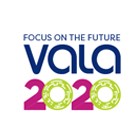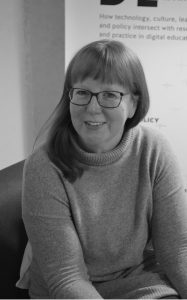Smart City Wide Collaboration – bringing a city together with Augmented Reality
VALA2020 SC2
Tuesday 11 February 2020, 2:45 – 3:50
Kerrie Shaw
- City of Newcastle
Please tag your comments, tweets, and blog posts about this session: #vala2020 #sc2
View the presentation slides here:
Abstract
Augmented reality in the city, all over the city! Promoting and displaying the cultural and heritage collections to the people using the spaces. Engaging with the people, using the collection outside the exhibition spaces, outside the building, in another reality! I HAD to get a job with a council whose goal this was! I wanted in. In March 2018 the position of Heritage Collections Digitisation Specialist with City of Newcastle Council was advertised. The door to my nirvana had opened and I leapt through it.
My presentation is a story of innovation; of bringing Newcastle’s heritage collections to life and the collaboration required to make it happen. This is a story of two strategies, Smart City and Library, being the catalyst for connecting Newcastle’s GLAM sector. It’s a story of experimentation, of learning and moving on; of failure. It’s a tale of how to regroup and reassess, fail again and then finally succeed with a product that shines.
To collaborate across the GLAM sector within your local government organisation can be a rewarding but interesting journey. To then add collaboration with other council directorates such as tourism, heritage planning, indigenous liaison, events management, IT, GIS, digital enterprises and smart city working groups is a whole new arena. Being new to the organisation had its advantages but also its problems.
By the time the conference dates are upon us the City of Newcastle will have an App with AR experiences all over the city. Experiences that have been built by council’s GLAM sector. These experiences will tell Newcastle’s stories, highlight its history and engage the users. Public art will come alive, artists will tell their stories and the past will breathe again, in another reality.
By using the collections held at the Local History Library and Museum we have not only added another layer to the history of the city but we have enabled access to items that are not usually seen and provided a platform for these items to have their time in the sun. By using content already in existence as commissioned for a VR experience by the city we have been able to quickly, easily and cost effectively activate several areas which otherwise could have taken years due to cultural sensitivities, logistics and budgets.
The inception, ongoing maintenance and growth of this project will be an example of technology integration, heritage display, public engagement, and of goodwill and co-operation that can be used as an example of success in collaboration.
This work is licensed under a Creative Commons Attribution-NonCommercial License.




